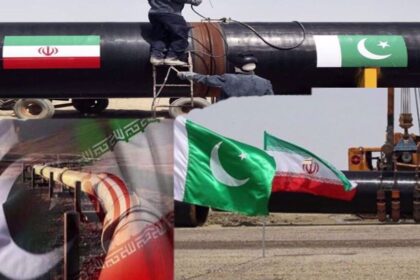In 1808, when Britain abolished the slave trade in its vast empire, the Royal Navy dispatched a squadron of ships to the African coast in an attempt to stop British subjects from participating in the slave trade. The squadron was emblematic of Britain’s control over the sea and was instrumental in ending the maritime trade of African slaves to Europe—a control that only grew stronger after Britain defeated Napoleon at Waterloo in 1815 and cemented itself as the sole superpower. What followed was a 99-year period known as Pax Britannica (Latin for British Peace), where Britain was the global policeman responsible for the upkeep of international law in the world.
The record of Pax Britannica is chequered, and it was weakened by the rise of powers such as the Russian and German empires in the late 19th and early 20th centuries, concluding in 1914 at the start of the First World War. Britain, weakened after the first war, lost its empire in the aftermath of the second, definitively ending its reign as the global hegemon.
America in Charge (1945-2024)
In 1945, two new superpowers emerged from the ashes of World War Two: the United States of America and the Soviet Union. The USA was in a particularly good place to take Britain’s place in the new world order, having fueled its economy by the war and having escaped most of the destruction faced by continental powers in the fighting. So, by funding reconstruction efforts across the world, inking treaties of cooperation, and supporting friendly regimes the world over, America established a global network of allies and partners. For most of the time since, the primary purpose of this network was to deter the spread of communism, but along the way, America continued to promote values such as globalization, internationalism, and the standardization of human rights; thus began Pax Americana.

The Trumpian Era
This system, built up over 80 years by some of the best politicians, statesmen, and diplomats of the last century, has been shaken to its very core over the last couple of months by the Trump administration. President Trump has asked close American allies to cede large swathes of territory to the United States, often accompanied by a threat of force if they refuse to comply—none have complied so far, with no consequences, but the rhetoric continues. Allied states such as Canada and Mexico, major trade partners and neighboring countries of the United States, have been subjected to harsh sanctions. European and East Asian countries that have relied on American promises for their national defense have been asked to take up greater responsibility for the same, and that too on very short notice. The United States seems to be on the verge of pulling a complete one-eighty on its foreign policy, which will impact the entire world.

President Volodymyr Zelensky of Ukraine, respected in most Western capitals for his wartime leadership, has become Washington’s latest target. Under President Biden, Ukraine received American military aid and support, which was crucial to stopping Russian advances and giving the country a fighting chance against a much stronger aggressor. President Trump is of the mind that his predecessor not only fanned the flames of war but may very well have started the fire. During his first weeks in office, Trump dispatched his Secretary of State to meet the Russian foreign minister in Saudi Arabia and negotiate an end to the war. Ukrainian and European officials were not invited to the meeting; the talks ended with the Russians singing an optimistic tune and everyone else giving mixed reactions.
The pressure was high on Zelensky this week during a visit to the White House. The hope was that he could convince President Trump to help find a peace deal that would be acceptable to both sides. What happened instead can only be termed an unprecedented fiasco. Not only was there no agreement reached, but a press conference comprising President Trump, his Ukrainian counterpart, and Vice President JD Vance ended with the Presidents literally trying to talk over one another and the VP calling Ukraine “thankless” in front of the media. President Zelensky left Washington, D.C., soon after and flew to London for a summit of European leaders. He was greeted warmly by the British Prime Minister, and an Anglo-Ukrainian agreement for $2.8 billion in military assistance was announced.

Western leaders have been quick to condemn President Trump, with the governments of France, Britain, and Germany issuing statements backing Ukraine unequivocally. Poland employed a more somber tone, saying Ukraine and the United States need to mend ties. Russia and Hungary condemned President Zelensky in statements mirroring those from right-wing American politicians.
A Glimpse of the Future?
While it’s unclear how much of an effect this scuffle will have on the war in Ukraine, it is clear that the United States has changed its position on the matter unilaterally. As a result, regional powers are looking to strengthen themselves, attempting to do away with years of dependence on the United States. Europe is abuzz with talk of a continental army or a military alliance to replace NATO should the United States refuse to fulfill its obligations under the North Atlantic Treaty. States such as Germany, Japan, and South Korea are considering developing nuclear weapons to replace the protection offered by the U.S. Nuclear Umbrella.

The end of Pax Americana also leaves behind a global power vacuum, one that cannot be easily filled. Russia, the traditional contender to replace the U.S., is no longer in a place to do so after the stalemate with Ukraine and losing its foothold in the Middle East with the fall of the Assad regime in Syria. China is a strong contender but lacks a footprint outside of Eurasia and Africa. Any multipolar arrangement, as is often proposed as a likely successor to American unipolarity, will result in an uptick in proxy wars and instability in the world. Europe holds power collectively, but the nature of a multinational alliance of democratic states is bound to be slow and indecisive in its actions, changing policies and positions often in response to public pressure.
The world awaits with bated breath. This is a developing story.















